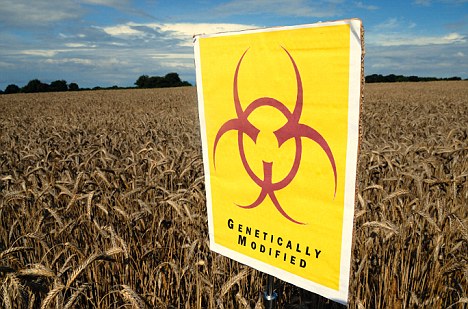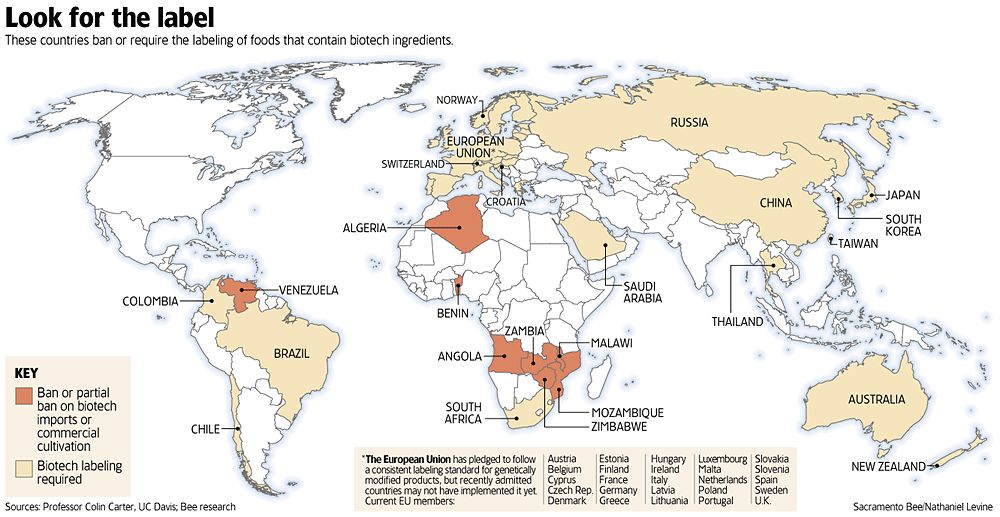U.S. Behind in Requiring the Labeling of GMOs

A recent IVN article, by contributor Ryan McLain, explains the current FDA guidelines on labeling the genetically modified foods (GMOs) that make it into our grocery stores. The senate failed to pass a bill last month that would have required the labeling of all GMOs by vote of 26 to 73. Unsurprisingly Monsanto, the world’s largest producer of genetically engineered seed, has in the past contributed to the campaigns of many of the Senators opposed to the bill through the company’s political action fund.
List of Monsanto’s political contributions January 2012 through June 2012.
Currently there are more than 40 industrialized countries which require the labeling of GMOs. Starting in January 2013, India will join the ranks of Australia, Japan, and the European Union in requiring GMO labeling. The United States is far behind the status quo even though multiple polls have shown that the majority of Americans are in favor of labeling.
In addition to enacting labeling laws, certain countries have placed outright bans on the planting of GMO crops. Ireland, Switzerland, New Zealand, Austria, Sri Lanka, Greece, Hungary and Bulgaria are among the countries where no GMO is permitted to take root. As of mid-2011 only three counties in the United States had successfully banned the planting of GMO crops. The counties are Mendocino, Trinity, and Marin, all in California. Other counties in the United States have attempted to sanction similar bans, but all have failed.
In November, Californians will be able to vote on the Right to Know initiative, which if it passes, will be the country’s first law requiring the labeling of a wide range of genetically modified food. The law would allow consumers the knowledge of which of their foods have had their DNA artificially altered.
Certain companies currently make it a point to label their products Non-GMO, in a self-initiated attempt to inform their consumers. The unregulated labeling practices have received some backlash however. A class action lawsuit filed against Pepsico owned Naked Juice accused the company of using GMOs in their Non-GMO labeled products.
Whether or not GMOs are a threat to public health or blight to the environment is still a point of heated debate between scientists, activists, and politicians. The fact is however, that consumers have the right to full disclosure about what they are buying and eating so they are able to make informed decisions.





